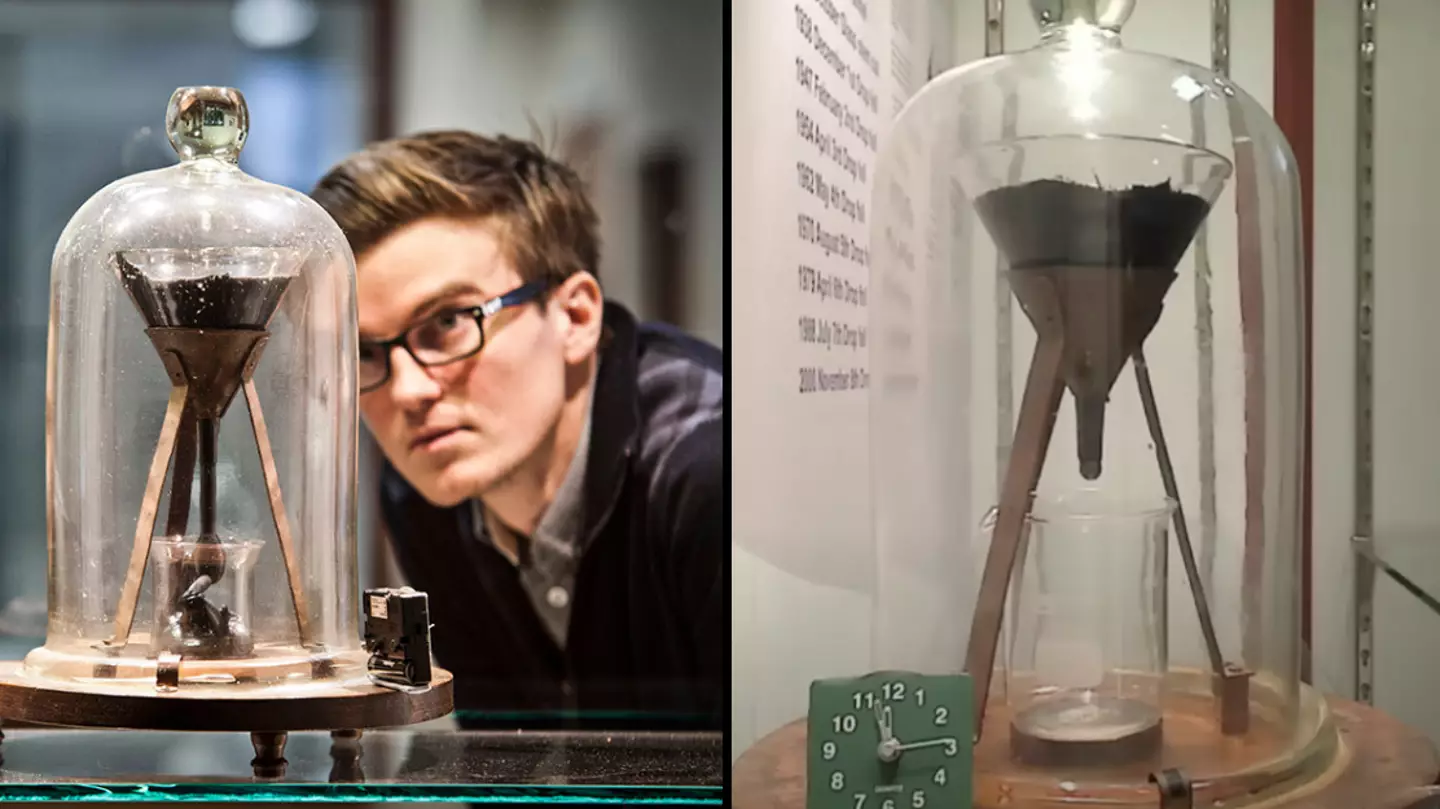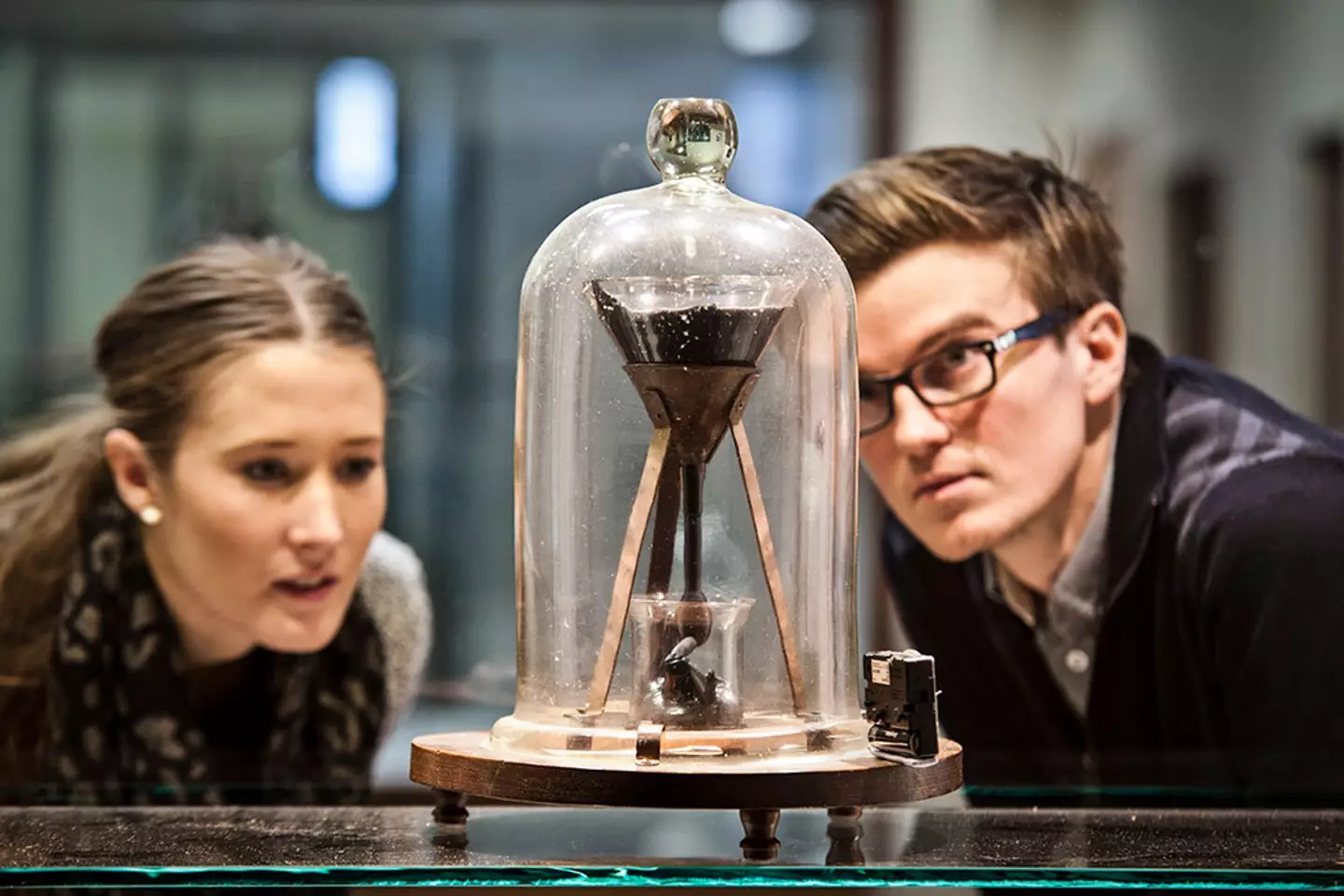
The world's slowest science experiment began all the way back in 1927 and is, to this day, still going strong.
We all remember conducting our own science experiments as children, whether that was a baking soda and vinegar volcano eruption or creating magic milk.
Both easily done within a few minutes, they were fun ways to discover how things worked in the world, having a good time while learning.
Well, things are a little different when it comes to one experiment - the pitch drop experiment - that began in Australia back in 1927. And as we said, it's still going, making it science's equivalent of the speed of a sloth as well as the Guinness World Record for the longest-running laboratory experiment.
Advert

What is the pitch drop experiment?
Created back in 1927 at the University of Queensland in Brisbane, the experiment was set up by Professor Thomas Parnell to prove to students that some substances that appear to be solid are, in fact, not.
Instead, they are incredibly viscous fluids.
Viscosity is science speak for how resistant a fluid is to flowing or moving. Water, for example, is not very viscous at all. On the other hand, glue is. Capeesh?
Well, the fluid in question was something called pitch (hence the name of the experiment), which is a derivative of tar. Known for being the world's thickest known fluid, it was once even used for waterproofing boats despite not being a solid.

Pitch drop experiment explained
To get things going, Prof Parnell heated a sample of pitch before pouring it into a glass funnel.
Next up was letting it cool before letting it set for a massive three years. Fast forward to 1930, and the professor cut the funnel stem.
Ever since that moment, the pitch has slowly dripped out of the funnel for a ridiculous 88 years.
According to the University of Queensland, the experiment was only set up as a demonstration so there are no specific conditions the pitch is kept in, meaning it has been influenced by factors such as temperature change at different times of the year.
How many times has it dropped?
So far, we have had nine drops in the near 100 years since the experiment began. On average, there has been one drop every decade.
The last drop happened back on April 2014, where the eighth and ninth drop combined and fell together.
With Professor Andrew White running the experiment by this stage, he had taken the decision to replace the beaker holding the eight drops that had fallen before the ninth could fully fuse.
But in doing this, the base of the experiment jar wobbled and snapped the ninth off. To this day, the experiment continues with the 10th drop expected to happen at any time in the remainder of the 2020s. The slow watch continues.
Topics: Science, Australia, Education, Guinness World Record